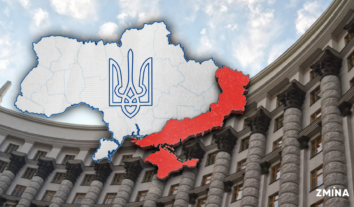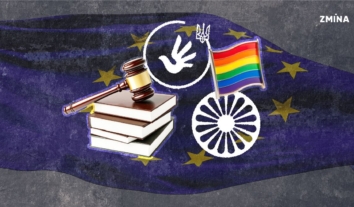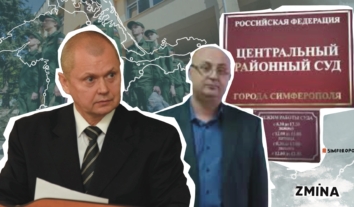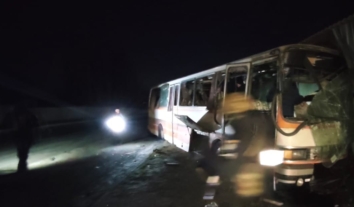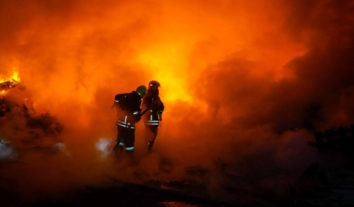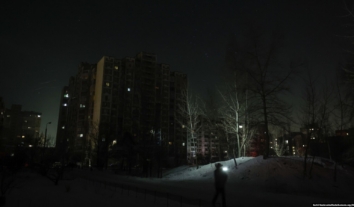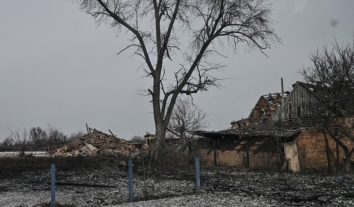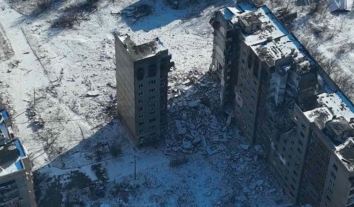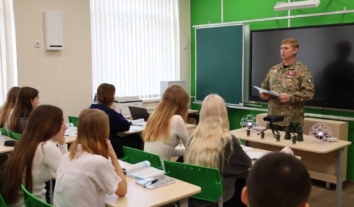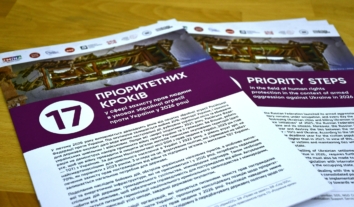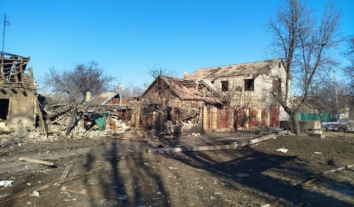Oleh. “Crimea has always been a sought-after region. All years of Ukrainian independence”
Oleh says he is not an optimists and manna does not fall from heaven. Therefore, he believes that each person has to work to return Crimea for the sake of his or her life and the lives of our loved ones, for the sake of peace.
We continue to publish the stories of people, who lost their homes as a result of the conflict in eastern Ukraine and Crimea, as well as of those, who lent a helping hand in difficult times.
I don’t consider myself an optimist. My interactions with international or foreign organizations don’t give me optimism regarding the return of Crimea. I’ve heard either from the Germans or from the Dutch a misconception, they think that we [Ukrainian citizens] all belong to the USSR and we should not resist that. We could continue to live as we had been living before. If the country and the people themselves won’t #make certain steps to secure international support, I don’t know how all this can turn around.
Crimea has always been a sought-after region. And it has always been this way, all 23 years of Ukrainian independence. In 1955-96 the political situation in Crimea was uneasy. With the return of Crimean Tatars from deportation, the priorities for the central authority started to change and the pro-Russian forces tried to resist this process. The conversations about #“Ukrainization” of Crimea were futile. It was impossible to find a postcard in Ukrainian for our Canadian friends in 1997-1998. We especially felt this lack in the educational environment. This is the sector is the most influenced by the politicians, as they try to shape a generation, that supports them in their ideology.
I have been implementing a lot of projects in fields of #intercultural communication, conflict prevention and intercultural education over last 15 years. The consistent team of authors was established, which produced the integrated course for Crimean educational institutions. It worked best on the pre-school level, because school children of teenage age tend to adopt the opinions discussed in their families. Those teachers, who joined our course and then returned were asked in their schools: “What is this for?” “What conflicts?” They were told: “There are no conflicts”. If we don’t talk about the conflicts, they will not exist. We can ban everything. And that is what’s happening now in Crimea.
I understood right away, that I #couldn’t work there. Despite what we heard from the people we worked with for many years, despite their numerous trips to Europe and the USA to learn something, they simply betrayed us. They are now working for the government with a different ideological direction. They said: “Your course is called ‘the culture of good-neighborly relations’. Nothing is changing. It’s the same children and teachers. Stay here, develop your tolerance course here”.
Those educators, who left Crimea and then came back for a short time, were told by their students that they had betrayed them. The students said: “We are staying here, and you’ve run away.” These students come out to the beach in Yalta with flags and contribute minimal efforts to show support. But it’s impossible to do a lot. I don’t know how many years the people will be able to sustain this patriotism. Maybe 4-5 years and then the people might lose touch with their #Ukranian identity.
Everyone has a very different #reasons for leaving [the peninsula]. Someone left because he or she was told that they needed to leave Crimea within 24 hours. Our colleagues from one of the Crimean University, women with their students, stood near the Ukrainian military in Masandra, Gurzuf, Gaspa, and Livadiya supporting them. These people had to leave within 24 hours. And they couldn’t come back because they were on the lists as those without permission to return. It took much time to resolve the issues with work and housing for some people. People were afraid about their property. This meant, that a person had to leave and accept Russian citizenship, get issued a Russian passport.
That sort of term emerged as #“social maintenance”. A lot of early IDPs were placed and got help with food and other necessities. It’s difficult to find work in this situation, but they don’t make any efforts to search for work, they don’t have the desire, they are simply waiting. They have got used to someone’s help. All I’m saying, but there are different people.
I traveled the whole summer to peninsula, it was difficult. I was on some lists of the #Crimean border patrol. On the train someone constantly had eyes on me, kept calling me, kept copying something in the notes. Three or four people would come to my train car, take pictures of something, asked where I worked, why I wasn’t getting a Russian passport. It was unpleasant.
Above all, the government has to act. The people, in my opinion, are already doing a lot. The National Bank made a few steps and has limited the opportunities for IDPs from Crimea. #One of its resolutions claims the IDPs to be non-residents of Ukraine, although the passport indicates that they are Ukranian citizens. The resolution came out the night before, and this morning they aren’t supposed to provide you service. I came to the bank and the workers are supposed to act according to the resolution. But they said to me: “How can they do such a thing without a warning?”. In my case, they didn’t meet me half way and didn’t block the accounts. Nevertheless at the clinic I experienced to meet such attitudes: “Why have you come? We didn’t expect you. There are many of you here”.
The story of Oleh is presented within the framework of the exhibition “My Place”, organized by the Educational Centre “Space of Tolerance” and the Congress of National Communities, supported by the Royal Netherlands Embassy. The authors of the texts are Kyra Kreyderman and Uljana Ustinova. The photos were taken from the family archive.







